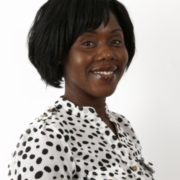Activity and adequate hydration are the foundations for healthy young lives
Councillor Evelyn Akoto discusses how Southwark Council is making water more accessible in schools and across the Borough to help address the issue of childhood obesity in the local area.
Once the UK left ‘dry January’ behind, participating local authorities eased into ‘Fizz Free February’. The third year of Southwark Council’s campaign to encourage the public and most importantly, primary school pupils to resist the temptation of sugary soft drinks. When children are thirsty during break times and at meal times, their instinct should be to reach for a bottle of water, rather than a can of flavoured syrup. Studies show the ‘pop’, ‘sparkle’ and ‘fizz’ of soft drinks create a sense of anticipation and enjoyment.
This is how professional marketers make soft drinks attractive; consuming cola or similar beverages will be fun and emotionally satisfying. If this proposition is marketed to be irresistible to adults, we can only imagine the temptation for a ten-year-old or eleven-year-old child.
Childhood obesity in Southwark
Childhood obesity remains a challenge for Southwark. We’re making progress with our healthy weight strategy. When we first did the research into excess weight gain, we found that our children were second highest for obesity in England for Reception and Year 6. Now, children in the borough are taking advantage of healthy meal options and activity in schools and we’re seeing improvements with fewer children becoming obese.
The science around the physical and psychological need for sugar is clear. Just six teaspoons a day in total are considered ‘safe’ by organisations concerned with health issues like diabetes, heart disease, and musculoskeletal conditions. Nutritionists and other healthcare professionals don’t recommend sugar as an ingredient in food and drink as it has no nutritional value and can cause metabolisms to drop. This makes it even more difficult for children to burn calories.
The reality is one can of cola, name brand or own brand can contain up ten teaspoons or sugar. This is too close to being nearly double what is acceptable. Like any of us, children respond to convenience. If we want them to make healthier choices, it’s our responsibility as parents, carers, teachers and council teams to make those choices accessible.
Water is integral to good health
Along with our free healthy school meals for all children in Southwark primary schools, we encourage physical activity during school break times and after school. We support disabled young people to get and stay active with our local offer. Our initiative to make water more freely accessible means all Southwark residents and visitors can stop and fill up their water bottles so there is no need to buy a sugary drink. Water supports the nervous system and good brain function so energy drinks are not necessary to give anyone a boost.
Some retailers in Southwark are taking note by not positioning energy drinks near typical after school snacks like crisps and chocolate. We hope that more small businesses will support the push for children and young people to benefit from healthy physical development and be aware that displaying impulse items is important and can make a difference to the wellbeing to individual children.Soft drinks can contribute to dehydration as studies indicate at present children aren’t drinking enough water during the day. Physicians cite that our bodies are made up mostly of water and vital organs - brain, heart, kidneys, liver - all rely on adequate hydration to function. Severe hydration can cause heart palpitations, dizziness, weakness and confusion. These symptoms would cause concern for an adult whereas they may be the first signs of serious illness in a child.
Making water free and accessible
‘Fizz Free February’ began as a purely local campaign but local government professionals concerned with public health and wellbeing recognised the issue of childhood obesity in their own boroughs. Year on year, more councils have been joining the campaign.
This, of course, is welcome as we all rely on local health and social care services and again, there is a shared sense of responsibility to consider the cost to the NHS. While there are no published figures for the cost of managing childhood obesity, caring for obese adults is more than £6bn and is forecast to rise.
Simple steps like those we’ve taken in Southwark have and will pay off especially in working with the public to raise awareness that we have provided free and accessible water in public spaces. By 2022, there will be 50 water fountains available for public use.
Southwark Council regularly maintains public drinking facilities to ensure they are hygienic, conveniently located and clearly marked. We aspire to get Southwark residents and visitors into the habit of having a bottle of water to hand and looking out for water when they take advantage of deals in local businesses.
Good health can be a shared experience
Most importantly, we are actively encouraging behavioural change so that water is the most important drink children consume during the day and the benefits of feeling healthier will lessen the temptation to ask parents and carers for soft drinks, sweetened juice or energy drinks.
Once water is part of lunchtime and after school routines, the aim is for healthy children to act as role models among their friends. When something is good for us, the motivation to share the experience can be hard to resist. •


.png)



.png)